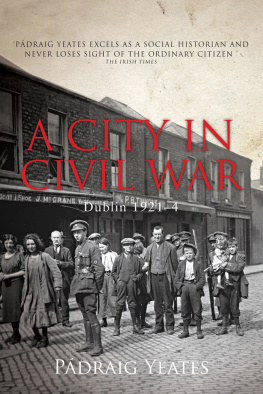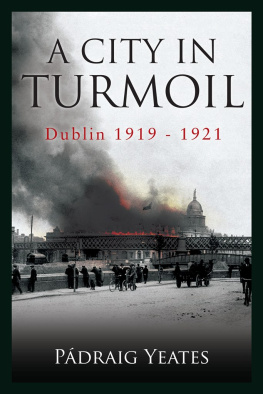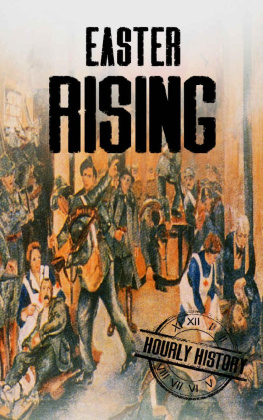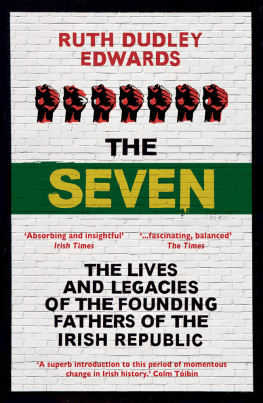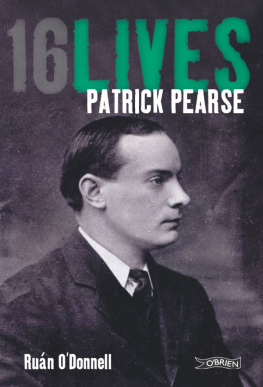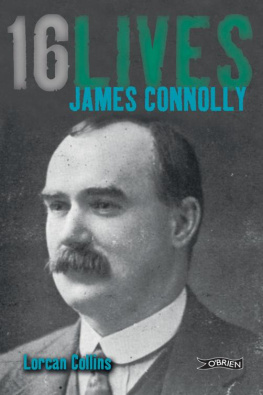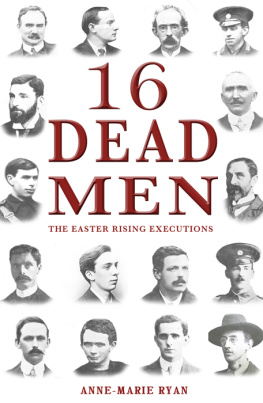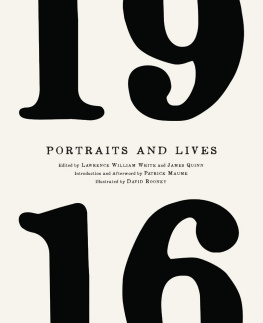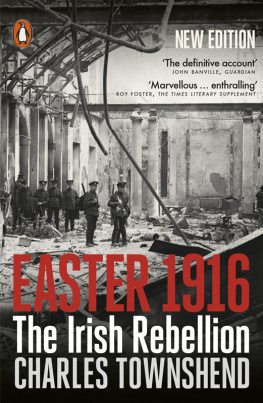Praise for Pdraig Yeates Dublin at War trilogy
A powerful social history reminds us that for all the headline grabbing events, putting bread on the table was still the most important priority for most
Professor Diarmaid Ferriter, The Irish Independent
Reminds the reader of how daily life went on side by side with the great events of history. In short, this is an excellent addition to the current literature
Irish Literary Supplement
Pdraig Yeates excels as a social historian and never loses sight of the ordinary citizen
The Irish Times
Absorbing and beautifully written
Catriona Crowe, The Irish Times
A fascinating study of the shifting political forces shaping Dublin
Dermot Bolger
Praise for Lockout: Dublin 1913, also by Pdraig Yeates
Essential reading for anyone interested in Irish labour, the history of industrial relations and Dublin society in the early twentieth century
The Irish Times
A concentrated, authentic and definitive account of an event that had a major influence on the political, economic and social life of this country
The Irish Independent
A CITY IN CIVIL WAR
Dublin, 19214
PDRAIG YEATES
Gill & Macmillan
To Karl Kautsky and renegades by hindsight everywhere.
The deciding battles for Irelands independence in recent years were won mainly by the energy and devotion of her proletariat. In spite of this, that proletariat is threatened by the independent state which it won, not with an improvement, but with a further decline of its position.
(From Irland, published January 1922 in Vienna, after Dil ireann had approved the terms of the Treaty with the British government. Translated by Angela Clifford and published by the British and Irish Communist Organisation, January 1974)
To Charlie Gilmore, who kept the faith.
They come again through forty years
When tired feet stumble by my door;
The leggings and the bandoliers
Of boys who cross the glen no more.
Their passing stirred a little breeze
Among the dead leaves crisply curled;
But sap still rises in the trees
And tempests roar around the world.
(The Leggings and the Bandoliers, a poem by Charlie Gilmore, published by Repsol Publications, Dublin, 1976)
To Katherine ODonnell, Justice for Magdalenes campaigner, who wants to live in a republic that cherishes all its people equally.
The first National Gay Conference took place in 1981 in Connolly Hall, the ITGWU headquarters in Cork, at a time when male homosexuality was still criminalised in Ireland. Since then, lesbian, feminist and gay activists have ensured unions not only led the struggle for economic justice but have helped empower everyone, irrespective of sex, marital status or sexual preference, to participate fully in the social, cultural and political life of our country with freedom, dignity and equality.
(SIPTU-LGBTQ conference, Liberty Hall, Dublin, 24 February 2014)
And to Geraldine Regan, a Liberties girl who has travelled far.
CONTENTS
PREFACE AND ACKNOWLEDGEMENTS
Like its predecessors, A City in Wartime: Dublin, 191418, and A City in Turmoil: Dublin, 191921, this book grew out of one written fifteen years ago called Lockout: Dublin, 1913. It picks up the story from the Truce that marked the end of the War of Independence in July 1921, extends through the Civil War and concludes with the abolition of three of Dublins great institutions: the City Council, the South Dublin Union and the Dublin Metropolitan Police. From being the cockpit of revolution, Dublin became the seat of reaction.
As with the previous books, I have tried to show how major public events affected ordinary citizens in their everyday lives. The revolutionary elite that set much of the agenda in previous years was deeply divided by the Treaty. As a result other forces, within the business community, among farmers and the labour movement, began to challenge the hegemony of militant nationalism. A new conservative consensus manifested itself in this desperately poor city, with the Catholic Church not alone filling many of the gaps in social services left by a government that was too busy fighting for survival to pay much attention to the wider needs of society but, in the process, determining the ethos for the citys denizens.
Among the anti-Treaty ranks various public figures struck revolutionary poses, but few proposed practical policies that would either defend the Republic or advance the radical policies outlined in the Proclamation of the Irish Republic (1916) and the Democratic Programme of Dil ireann (1919). At the national level, the outbreak of civil war would see the dissipation of the national struggle into a series of localised conflicts that would simultaneously centralise administrative power in the Free State and prepare the way for the return of parish-pump politics.
Many people assisted me during my research. I wish to make particular mention again of the Dublin Civic Archives, a wonderful resource for everyone interested in Dublin and its past. Mary Clarke, Mire Kennedy and their colleagues facilitated my requests with unfailing courtesy. I also wish to thank the staff of the National Archives and especially Catriona Crowe, who has helped revolutionise access to public records in Ireland and has been unstinting in her support, Diarmaid Ferriter for his encouragement and Katherine ODonnell for bringing articles on women and militarism to my attention and above all for her unfailing kindness and patience when she had many other calls on her time.
Miriam Moffitt gave me great assistance and advice regarding Dublin loyalist claims for compensation, and her briefing ensured that I made the best use of my visit to the British National Archives at Kew. Jim Herlihy pointed me in the right direction on the DMP, Oriel House and much else.
Commandant Padraic Kennedy and his colleagues at the Bureau of Military History have always facilitated my requests for access to material at short notice.
Kieran Murphy and Tom MacSweeney facilitated access to the archives of the Society of St Vincent de Paul, which still battles poverty and deprivation in the city.
Brendan Byrne, Ed Penrose, Jack McGinley, Francis Devine, Theresa Moriarty and their colleagues in the Irish Labour History Society have helped with their comments and discussion of aspects of the history of the period.
My thanks also to Gerry Kavanagh, Keith Murphy and their colleagues at the National Library of Ireland and the National Photographic Archive, Noelle Dowling at the Dublin Diocesan Archives, Seamus Helferty and his colleagues at the UCD Archives. Eamon Devoy of the Technical, Engineering and Electrical Union provided access to early records of the Irish Engineering, Shipbuilding and Foundry Trade Union.
I wish to thank Eamon OReilly, Pat Ward and Charlie Murphy at Dublin Port for facilitating access to its records, Brian Kirby for access to the Irish Capuchin Provincial Archives, Noel Gregory and Terry Fagan for information on the north inner city, Joe Mooney, John Dorney, Eve Morrison, Ann Matthews, Margaret hgartaigh and Tom Morrissey SJ for their insights into the era, and Peter Rigney for access to the files of the Irish Railway Record Society and his unique knowledge of industrial relations in this area. A special word of mention for Shane Mac Thomis, who gave to me so freely of his vast knowledge of life and death in Dublin, as he did to everyone. The city and its history are infinitely the poorer for his passing.
At Gill & Macmillan I wish to thank Deirdre Rennison Kunz for managing the manuscript through the production process, Jen Patton for picture research, Teresa Daly for spreading the word, Fergal Tobin (now retired) for inadvertently initiating the project, and his successor, Conor Nagle, for staying with it. Thanks also to Don OConnor for another magnificent jacket, Samas Brgin for the depth of knowledge he brings to the editing process, and Sofra Murphy for her meticulous typesetting.

